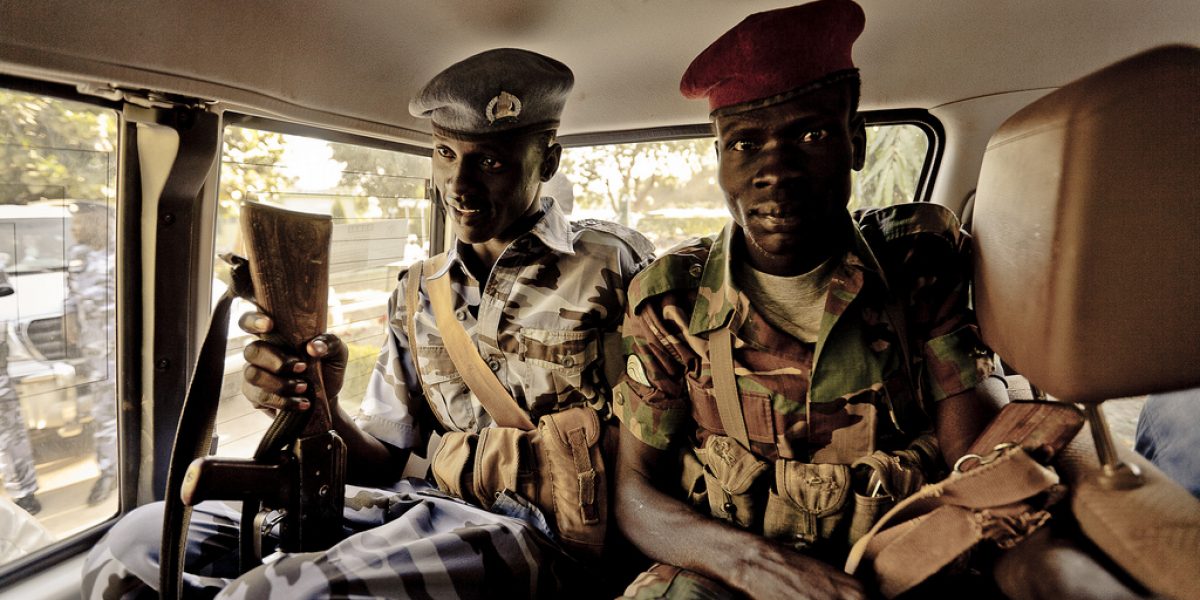Both are under international scrutiny, and a landmark United Nations (UN) Security Council decision on March 31 could herald a renewed focus on justice in Africa. After a two-month delay, the security council voted to send suspected war criminals implicated in the conflict in Sudan’s Darfur region to the International Criminal Court, following the recommendations of the UN’s own report. In the preceding week, the security council also approved the deployment of 10000 additional peacekeepers to Sudan, an arms embargo on the warring parties, and a travel ban and assets freeze on alleged perpetrators of war crimes.
Richard Dicker of Human Rights Watch says: ‘This is a historic step … to provide real protection to the people of Darfur. But it comes at a heavy price – the unlawful exemption that the US imposed on the referral.’
The Darfur case has tested both the efficacy of the multilateral system and global commitments to end crimes of such gravity. The delay in reaching a decision, largely attributable to US opposition to the court, has cost between 20000 and 30000 lives, with UN estimates placing the death toll in Darfur at roughly 10000 every month, and independent analyst Prof Eric Reeves of Smith College in Massachusetts contending that the rate is closer to 15000 deaths a month.
The court can act in situations where member countries are unable to, and request the court to do so. Uganda, the Democratic Republic of the Congo and the Central African Republic are member states whose governments requested the court to investigate crimes on their territory. Though the court can also act independently to prosecute citizens of its member states, it needs a security council referral in cases against non-member countries such as Sudan and the US.
The security council was deadlocked for weeks after the release of the UN report. The US initially proposed a separate (and potentially more costly and time-consuming) joint UN-African Union tribunal, with sanctions against the Sudanese government. China and Russia, which have oil and military interests in Sudan, had resisted attempts to refer the matter to the court and vetoed previous sanctions proposals.
Nigeria advocated an ‘African panel for justice and reconciliation’. After hours of negotiation, the March 31 vote was passed 11-0, with Algeria, Brazil, China and the US abstaining.
The US agreed to abstain after extracting concessions that its citizens working in Sudan would be exempt from prosecution by the court or any other country. But the court has built-in safeguards against politically motivated prosecutions. It acts only against the gravest transgressions – crimes against humanity, war crimes or genocide – and only where governments are unwilling or unable to act themselves. Member states can circumvent the court’s jurisdiction by investigating and prosecuting alleged crimes themselves, which is precisely what the US claims it does. In June last year, Washington attempted to pass a security council resolution that would grant immunity to US military and civilian personnel serving in UN structures, prompting UN Secretary-General Kofi Annan to remark: ‘Blanket exemption is wrong. It is of dubious judicial value.’
Abstention from the French-sponsored resolution is a face-saving measure for the Americans, who were in the uncomfortable position of either modifying their antagonism to the court or vetoing the resolution to prosecute perpetrators of crimes that Washington itself has repeatedly designated as ‘genocide’.
The imminent threat of prosecution may have prompted Sudan’s arrest of 15 members of its security forces over Easter, accusing them of atrocities in Darfur. This is the first time the government has acted against its own personnel, though the human rights lobby views the move with cynicism.
The Darfur decision has raised a sword of Damocles – that war criminals will be hauled before the world court in The Hague – and it may well serve to check the worst atrocities in Africa’s conflict hot spots. The speed with which the court has begun operations since its start in July 2002 is unprecedented for a multilateral institution. On March 15, it made good on its promise that trials would begin this year, when it held its first judicial proceedings – a pretrial hearing into atrocities in the Congo.
Prosecutors must demonstrate similar efficiency in investigating the 51 people named as offenders in the UN report on Darfur. The cost at which this decision has come, in terms of human lives and in the concessions granted to the US, will be weighed against the effect of the court’s work over the coming months.








